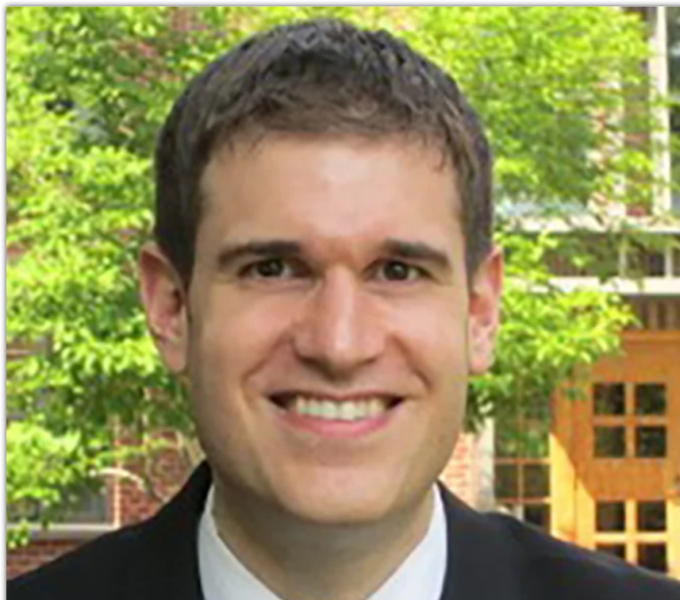David Thaw is an Associate Research Professor of Law and an Assistant Research Professor of Computing & Information. He is an internationally-recognized expert in law and technology. David’s research and scholarship examine issues of cybersecurity regulation, cybercrime, cyber warfare, and related questions of privacy and cyberlaw. In addition to his cybersecurity work, Professor Thaw is also a scholar of administrative and criminal law.
Comprehensive information regarding Professor Thaw's scholarship, technical and scientific research, teaching and other professional activities are available on his website.
- PhD, University of California, Berkeley
- JD, Berkeley Law
- MA, Political Science, University of California Berkeley
- BA, BS, University of Maryland, College Park
Education & Training
Recent Publications
Articles:
- Administrative Truth: Comments on Cortez’s Information Mischief, 94 CHI.-KENT L. REV. 607 (2019).
- Ancient Worries and Modern Fears: Different Roots and Common Effects of U.S. and EU Privacy Regulation, 49 CONN. L. REV. 1621 (2017) (with Pierluigi Perri).
- Cybersecurity Stovepiping, 96 NEB. L. REV. 339 (2017).
- Data Breach (Regulatory) Effects, 2015 Cardozo L. Rev. de novo 105 (2015).
- Reasonable Expectations of Privacy Settings: Social Media and the Stored Communications Act, 13 Duke L. & Tech. Rev. 36 (2015) (with Christopher J. Borchert and Fernando Pinguelo).
- Surveillance at the Source, 103 Ky. L. J. 405 (2015).
- Enlightened Regulatory Capture, 89 Wash. L. Rev. 329 (2014).
- The Efficacy of Cybersecurity Regulation, 30 Ga. St. U. L. Rev. 287 (2014).
- Criminalizing Hacking, Not Dating: Reconstructing the CFAA Intent Requirement, 103 J. Crim. L. & Criminology 907 (2013).
- When Machines Are Watching: How Warrantless Use of GPS Surveillance Technology Terminates The Fourth Amendment Right Against Unreasonable Search, 121 Yale L. J. Online 177 (2011) (with Priscilla Smith, Nabiha Syed and Albert Wong).
- User Choices and Regret: Understanding Users' Decision Process about Consensually Acquired Spyware, 2 I/S: J. L. & Pol. Info. Soc'y 283 (2006) (with Nathaniel Good, Jens Grossklags, Aaron Perzanowski, Deirdre Mulligan, and Joseph Konstan).
Scientific, Policy, and Other Publications (Selected):
- David Thaw and Carrie Cordero, Rebooting Congressional Cybersecurity Oversight, Center for a New American Security: Paper Series on Congressional Oversight (forthcoming January 2019).
- Carrie Gardner, Abby Waliga, David Thaw, and Sarah Churchman, Using Camouflaged Cyber Simulations as a Model to Ensure Validity in Cybersecurity Experimentation.
- Carrie Gardner, David Thaw, Sarah Churchman, M. Shannon Bradley, and Adeline Giritharan, Chameleon: Effective Honeynet Operation, Women in Cybersecurity, Mar. 31, 2017 (Tuscon, AZ).
- Julie Cohen, Chris Hoofnagle, William McGeveran, Paul Ohm, Joel Reidenberg, Neil Richards, and David Thaw, Information Privacy Scholars' Brief in Spokeo, Inc. v. Robins, No. 13-1339, Sept. 6, 2015.
- Priscilla J. Smith, Nabiha Syed, David Thaw and Albert Wong, Brief of Yale Law School Information Society Project Scholars and Other Experts in the Law of Privacy and Technology in United States v. Jones, 565 U.S. 400 (2012).
- David B. Thaw, Characterizing, Classifying, and Understanding Information Security Laws and Regulations: Considerations for Policymakers and Organizations Protecting Sensitive Information Assets (May 12, 2011) (Ph.D. dissertation, University of California, Berkeley (on file with the University of California).
- David Thaw, Neha Gupta, and Ashok Agrawala, Proposal for a "Down-the-Chain" Notification Requirement in Online Behavioral Advertising Research and Development, W3C Workshop on Web Tracking and User Privacy (Apr. 28, 2011).
- David Thaw, Jerome Feldman and Joseph Li, CoPE: Democratic CSCW in Support of e-Learning, 2008 IEEE Computer Soc’Y: Proceedings of the Int’l Workshop on Collaborative E-Learning Sys. & Applications 481.
- Sante Caballé, Jerome Feldman and David Thaw, Supporting Communities of Learning Practice by the Effective Embedding of Information and Knowledge into Group Activity, 2008 Computer Soc’Y: Proceedings of the Int’l Workshop on Collaborative E-Learning Sys. & Applications 493.
- Jerome Feldman, Daniel Lee and David Thaw, Communities of Practice Environment, in The Internet and Society (Morgan, Bebbia & Spector eds., 2006).
- Nathan Good, Rachna Dhamija, Jens Grossklags, Steven Aronowitz, David Thaw, Deirdre Mulligan & Joseph Konstan, Stopping Spyware at the Gate: A User Study of Privacy, Notice and Spyware 2005 Ass’n of Computing Machinery: Proceedings of the Symposium on Usable Privacy and Security 43.
